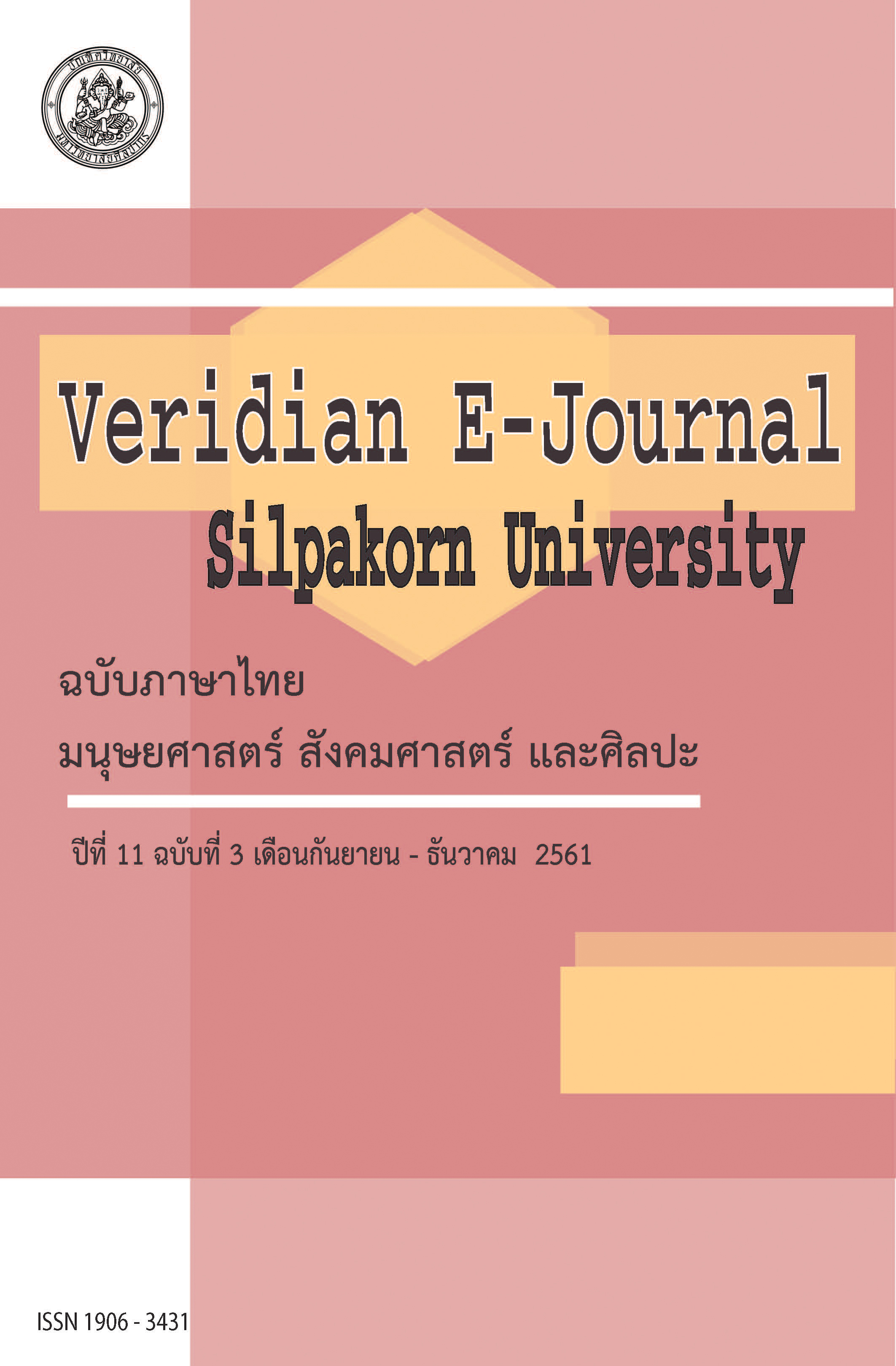การพยากรณ์อัตราแลกเปลี่ยนเงินตราต่างประเทศระหว่างเงินบาทของไทย กับเงินเยนของญี่ปุ่น (Exchange Rate Forecasting Between Thai Baht And Japanese Yen)
Main Article Content
Abstract
การวิจัยครั้งนี้มุ่งวิเคราะห์ปัจจัยที่ส่งผลต่ออัตราแลกเปลี่ยนเงินตราต่างประเทศระหว่างเงินบาทของไทยกับเงินเยนของญี่ปุ่น ระดับความสำคัญของปัจจัยที่ส่งผลต่ออัตราแลกเปลี่ยน และพยากรณ์อัตราแลกเปลี่ยนในอนาคตของค่าเงินบาทกับเงินเยนญี่ปุ่น ผลการวิจัยพบว่าตัวแปรอิสระที่มีผลต่ออัตราแลกเปลี่ยนระหว่างค่าเงินบาทต่อค่าเงินเยน ไปในทิศทางเดียวกัน คือส่วนต่างระหว่างอัตราเงินเฟ้อ (DINF) การนำเข้าของไทยรายเดือน กับญี่ปุ่น (RXM) และดัชนีความเชื่อมั่นทางธุรกิจ (BSI) ส่วนดัชนีค่าเงินบาทที่แท้จริง (REER) และดัชนีผลผลิตภาคอุตสาหกรรม (MPI) มีผลกระทบต่ออัตราแลกเปลี่ยนระหว่างค่าเงินบาทต่อค่าเงินเยน ในทิศทางตรงข้าม ตัวแปรอิสระที่ไม่มีผลต่ออัตราแลกเปลี่ยนระหว่างค่าเงินบาทต่อค่าเงินเยน อย่างมีนัยสำคัญทางสถิติ คือ ส่วนต่างระหว่างอัตราดอกเบี้ย (DI) ดัชนีผลผลิตภาคบริการ (SPI) อัตราการเปลี่ยนแปลงของอัตราแลกเปลี่ยนใน period ก่อนหน้า (EXCP) อัตราการค้า (TOT) และปริมาณเงินความหมายกว้าง (MQ) โดยปัจจัยที่ส่งผลต่ออัตราแลกเปลี่ยนระหว่างเงินบาทของไทยกับเงินเยนของญี่ปุ่นมากที่สุด คือ ดัชนีผลผลิตภาคอุตสาหกรรม (MPI) ดัชนีความเชื่อมั่นทางธุรกิจ (BSI) ดัชนีค่าเงินบาทที่แท้จริง (REER) ข้อมูลการนำเข้าของไทยรายเดือน กับ ญี่ปุ่น (RXM) และส่วนต่างระหว่างอัตราเงินเฟ้อ (DINF) ตามลำดับ ผลการพยากรณ์ พบว่า อัตราแลกเปลี่ยนระหว่างเงินบาทต่อเงินเยน ในไตรมาสที่ 4 ของปี 2561 เงินเยนจะมีแนวโน้มอ่อนค่าลง ธุรกิจจึงควรชะลอการถือเงินสกุลเยนเพื่อให้ธุรกิจมีความได้เปรียบจากอัตราแลกเปลี่ยนในช่วงเวลาดังกล่าว โดยไตรมาสที่ 3 ของปี พ.ศ. 2561 อัตราแลกเปลี่ยนระหว่างเงินบาทต่อเงินเยนอยู่ระหว่าง 0.268773 – 0.269821 บาทต่อเยน และไตรมาสที่ 4 ของปี จะอยู่ระหว่าง 0.270355 – 0.271411 บาทต่อเยนตามลำดับ
This research aims to analyze the factors influencing the foreign exchange rates between the Baht and the Yen, the effect level of factors and forecast exchange rate between the Baht and the Yen. The results showed that the variables affecting the exchange rate between the Baht and the Yen by the same direction were the different inflation rate between Thai and Japan (DINF), the monthly import of Thailand (RXM), and Thai business Sentiment Index (BSI), while real effective exchange rate (REER) and manufacturing production index (MPI) affect the exchange rate between the Baht and the Yen by the opposite direction. The independent variables that have no effect on the exchange rate between the baht and the yen were the different of interest rate between Thailand and Japan (DI), service production index (SPI), changing in exchange rate of previous period (EXCP), term of trade (TOT) and money quantity (MQ). The variable that produced the greatest effect on the exchange rate between the baht and the yen were manufacturing production index (MPI), Thai business sentiment Index (BSI), real effective exchange rate (REER), monthly import data of Thailand (RXM) and different Inflation rate (DINF) respectively. The forecast result indicated that the yen will be depreciated against the baht in the 4th quarter of 2018, therefore the business should delay purchasing the yen in order to gain the advantage from exchange rate. The exchange rate between Thai Baht and Japanese Yen in the third quarters of 2018 will be between 0.268773 – 0.269821 and fourth quarters will be between 0.270355 – 0.271411 Baht per Yen.

